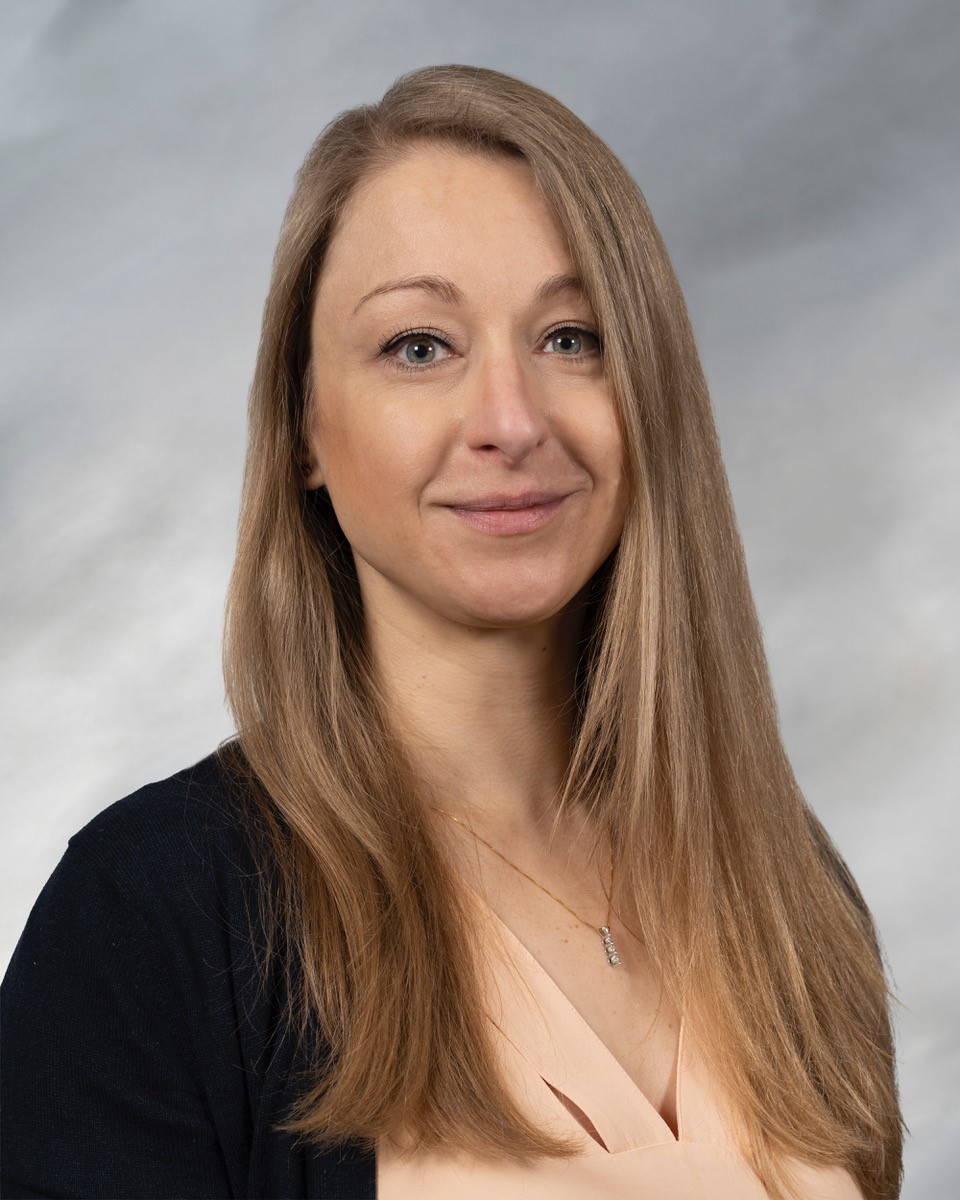Alyson Sujkowski is a scientist and an endurance athlete – a pair of identities that make the 2022 doctoral graduate’s latest research project at the Wayne State University School of Medicine a natural next step.

Dr. Sujkowski is post-doctoral fellow in the laboratory of Department of Pharmacology Chair Sokol Todi, Ph.D. Like patients she is working to help treat through her research, Dr. Sujkowski also has a rare disease, undergoing four craniotomies to correct it.
“I really think that I’m as healthy as I am today despite all of those difficulties because I’ve always been very active. I understand that exercise isn’t always accessible to everyone, so I think studying ways in which we could mimic its effects would really be very powerful,” she said. “Exercise protects our brain and nervous system to enhance memory, improve mood and to prevent neurodegeneration, but we know less about how exercise affects symptoms in movement disorders like Kennedy’s Disease.”
Kennedy’s Disease, also known as Spinal and Bulbar Muscular Atrophy, or SBMA, is a rare X-linked recessive genetic progressive neuro-muscular disease, according to the Kennedy’s Disease Association. Both the spinal and bulbar neurons are affected, causing muscle weakness and wasting throughout the body, most noticeable in arms and legs, the face and throat. The adult-onset disease usually appears between the ages of 30 and 50.

Her research proposal, “Using Drosophila exercise for therapeutic discovery in Kennedy’s Disease,” was selected for the Kennedy's Disease Association’s Waite-Griffin SBMA Fellowship. The training grant includes $75,000 in funding for the first year, as well as up to $2,000 in travel and educational expenses.
“This is an exciting opportunity since I think it will open a lot of doors as I embark on an independent career where I can hopefully run my own lab,” she said.
She launched her academic career at WSU in 2014, first as a research assistant in the Department of Physiology, then as a doctoral student. She has been with the Department of Pharmacology since 2019.
“Naturally, I am honored and excited to receive this award,” Dr. Sujkowski said. “I think that there’s a great need for the prevention and treatment of neurodegenerative diseases like Kennedy’s Disease, and that treatments like physical exercise that are low cost but have big effects on the patient as a whole, could have a big impact. It’s a real pleasure to think I can help contribute to that.”
Working in Dr. Todi’s lab, she helped develop a new Kennedy’s Disease model using the fruit fly, or Drosophila melanogaster. Drosophila expressing human KD disease proteins progressively lose motor function and have a shorter life.
“In my pre-doctoral work, I studied how exercise helps improve overall health, but now I’m moving on to see how it might protect against neurodegenerative diseases like Kennedy’s Disease,” she said. “The fruit fly system allows us to do really complex genetics in a cost-effective way, so I should be able to identify the molecular mechanisms that might explain how exercise may help patients. I think a really exciting concept is that we might be able to activate those pathways in the future to treat and prevent KD symptoms, but also to provide those benefits for patients who are no longer able to exercise because their disease has progressed too far.”
For more information on what’s happening in the Wayne State University Department of Pharmacology, visit https://pharmacology.med.wayne.edu/.